As health care workers prepare for surges of Covid-19 patients, they must grapple with the ethics of rationing critical medical gear.
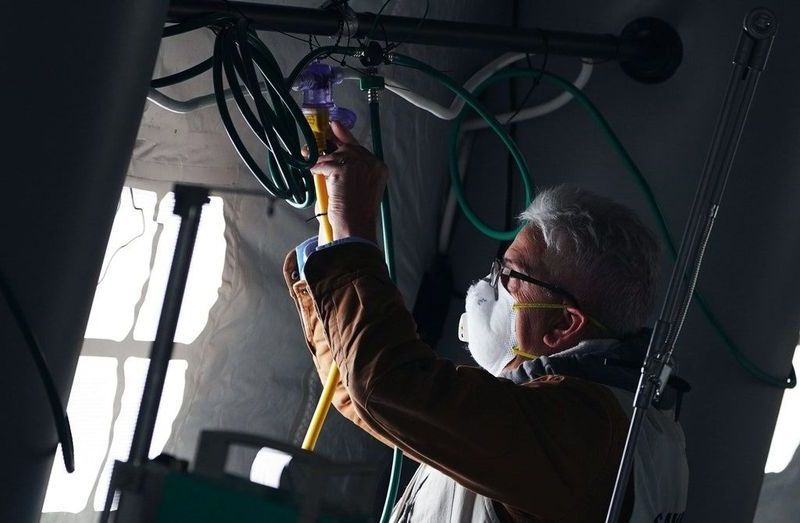

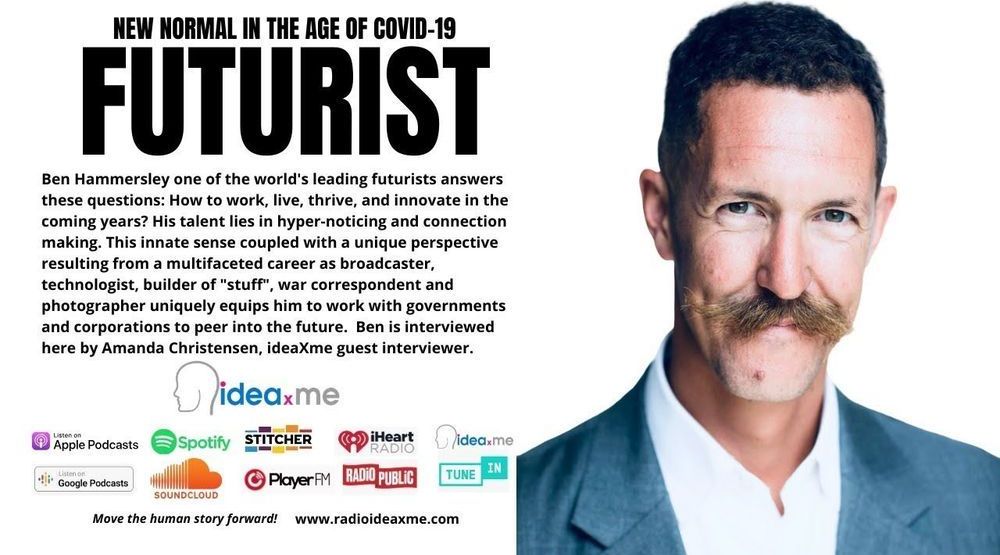
Defining our “New Normal” in the Age of Coronavirus — Amanda Christensen, ideaXme (http://radioideaxme.com/) guest interviewer, interviews Ben Hammersley, one of the world’s leading futurists to answer questions about how we are going to work, live, thrive, and innovate in the coming years — #Ideaxme #BenHammersley #Innovation #Futurist #Futurism #Covid19 #Coronavirus #Science #Longevity #Health #Medicine #Environment #Space #Oceans #Literature #Music #Food #Future #Entertainment #Sports #Fashion Awesome Foundation European University Institute United Nations Alliance of Civilizations (UNAOC) UNAOC Fellowship Program Goldsmiths, University of London WIRED UK The Brookings Institution European Commission.
Amanda Christensen, ideaXme guest interviewer, interviews Ben Hammersley, one of the world’s leading futurists and founder of international Strategic Foresight agency Hammersley Futures.
Amanda Christensen Comments:
Our world as we know it has seemingly changed overnight as countries globally make the decision to impose lockdown-type mandates in a worldwide effort to slow the spread of the deadly coronavirus (Covid-19).
As statistics, mandates, stocks, and all information related to coronavirus changes minute by minute, it can be overwhelming to keep up with it all, let alone separate fact from fiction, with misinformation being spread just as rapidly as the virus itself.
In this unprecedented time in our lives, we must adapt to our new situation by means of social distancing, working from home, and ensuring our news sources are credible.
As we try to keep up with our ever-changing new normal, two questions persist: how are we going to adjust to this new situation, and what does this mean for the future?
Ben Hammersley
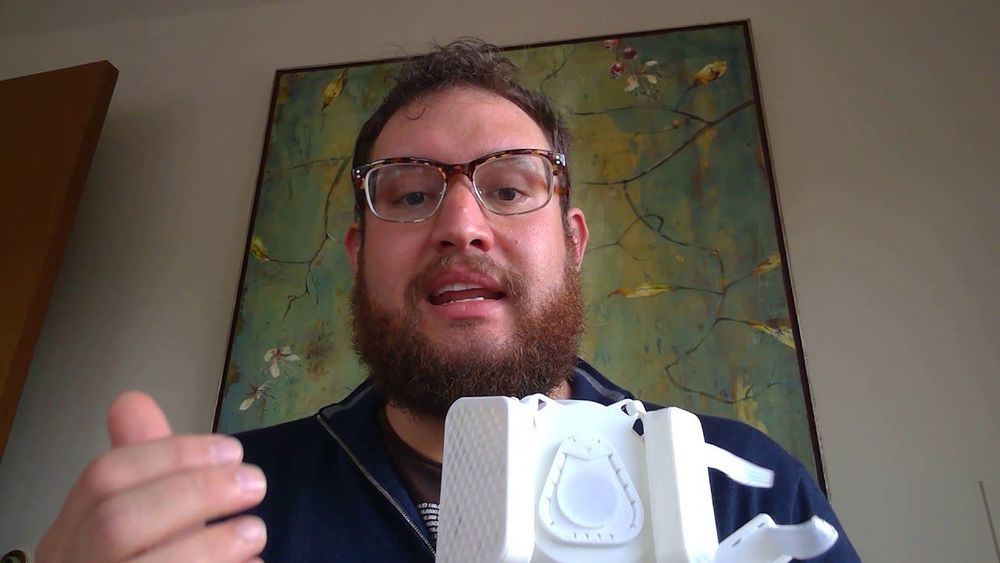
The 19 3D-printable parts that make up the mask are visible on the Maker Mask website along with details on materials needed, download instructions, videos, the ability to donate to the cause and more. The cost of each finished mask, printed in about three hours, is estimated to be between $2 and $3.
A technology veteran and a 3D-printing “savant” have teamed with other members of industry, health care and government to launch Maker Mask, a Seattle nonprofit creating medically endorsed, reusable protective masks using everyday 3D printers.
Jonathan Roberts, founder and partner at the Bellevue, Wash.-based venture capital firm Ignition Partners, is also a co-founder of RPrime, a nonprofit that is helping to fund the mask-making initiative. The former Microsoft executive said the goal is to address critical supply shortages and support “the real heroes on the front lines” of the COVID-19 pandemic.
The respirator-style mask with a replaceable HEPA filter and other commonly available parts, was developed by Rory Larson, a rapid prototyping expert with 10 years experience in engineering, CAD, 3D printing, CNC and small batch production manufacturing. It took just a week for the group, working with Larson’s design, to get a small production facility up and running out of Epiphany Parish in Seattle.
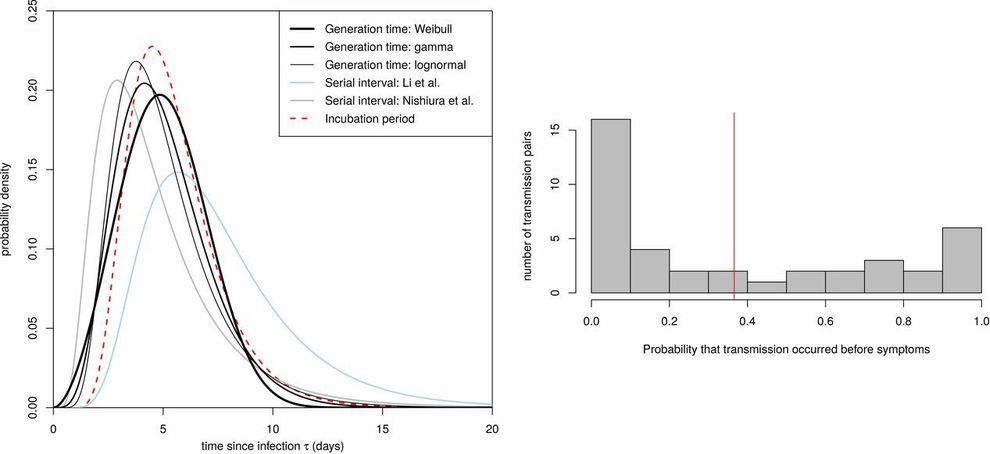
The newly emergent human virus SARS-CoV-2 is resulting in high fatality rates and incapacitated health systems. Preventing further transmission is a priority. We analyzed key parameters of epidemic spread to estimate the contribution of different transmission routes and determine requirements for case isolation and contact-tracing needed to stop the epidemic. We conclude that viral spread is too fast to be contained by manual contact tracing, but could be controlled if this process was faster, more efficient and happened at scale. A contact-tracing App which builds a memory of proximity contacts and immediately notifies contacts of positive cases can achieve epidemic control if used by enough people. By targeting recommendations to only those at risk, epidemics could be contained without need for mass quarantines (‘lock-downs’) that are harmful to society. We discuss the ethical requirements for an intervention of this kind.
COVID-19 is a rapidly spreading infectious disease caused by the novel coronavirus SARS-COV-2, a betacoronavirus, which has now established a global pandemic. Around half of infected individuals become reported cases, and with intensive care support, the case fatality rate is approximately 2%. More concerning is that the proportion of cases requiring intensive care support is 5%, and patient management is complicated by requirements to use personal protective equipment and engage in complex decontamination procedures. Fatality rates are likely to be higher in populations older than in Hubei province (such as in Europe), and in low-income settings where critical care facilities are lacking. In the public health cost of failing to achieve sustained epidemic suppression was estimated as 250,000 lives lost in the next few months in Great Britain, and 1.1−1.2 million in the USA, even with the strongest possible mitigation action to ‘flatten the curve’.
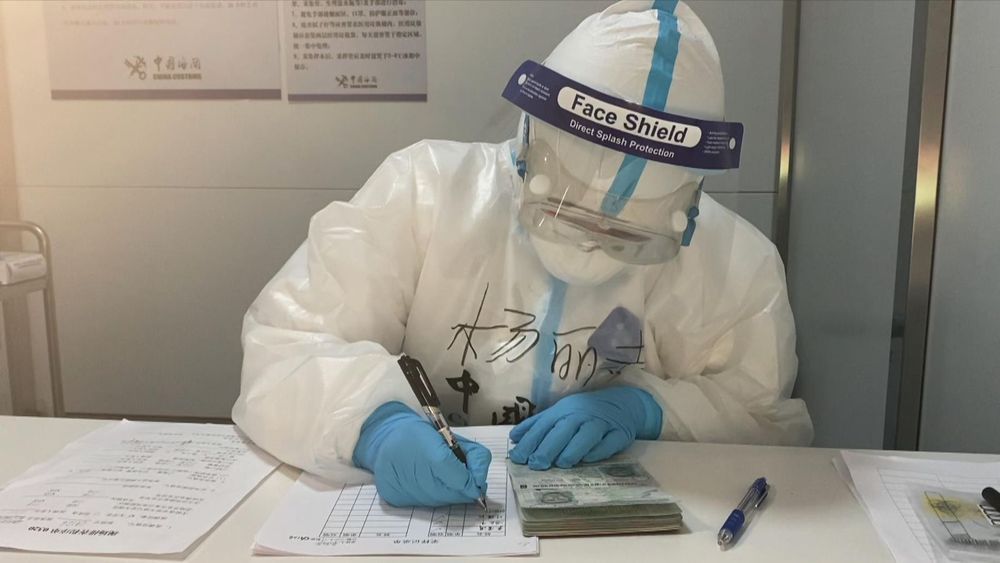
Hospitals are threatening to fire health-care workers who publicize their working conditions during the coronavirus pandemic — and have in some cases followed through.
Ming Lin, an emergency room physician in Washington state, said he was told Friday he was out of a job because he’d given an interview to a newspaper about a Facebook post detailing what he believed to be inadequate protective equipment and testing. In Chicago, a nurse was fired after emailing colleagues that she wanted to wear a more protective mask while on duty. In New York, the NYU Langone Health system has warned employees they could be terminated if they talk to the media without authorization.
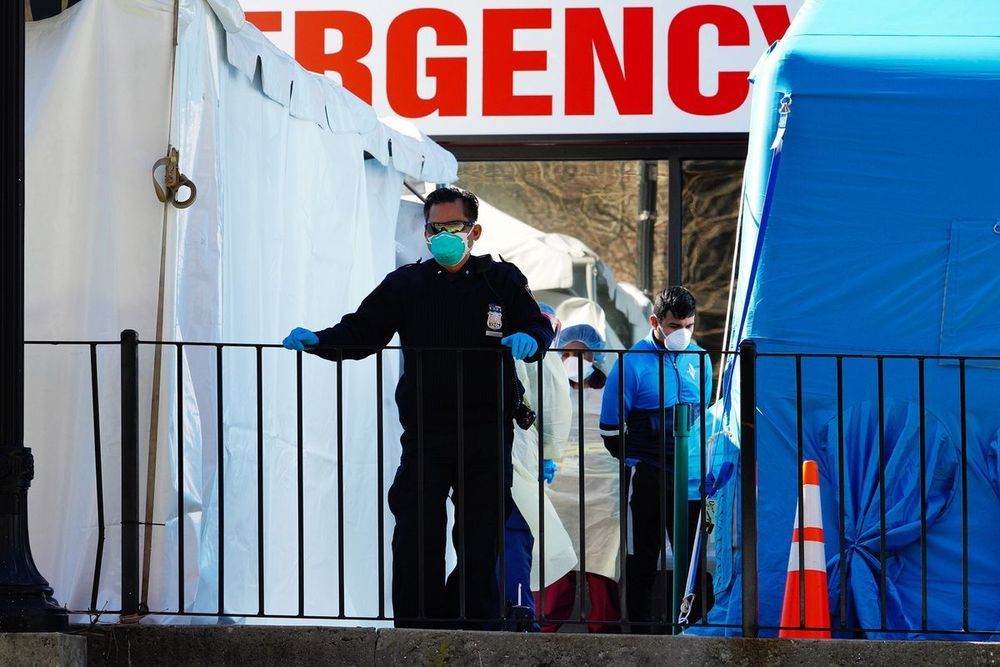
Hospitals are threatening to fire health-care workers who publicize their working conditions during the coronavirus pandemic — and have in some cases followed through.
Ming Lin, an emergency room physician in Washington state, said he was told Friday he was out of a job because he’d given an interview to a newspaper about a Facebook post detailing what he believed to be inadequate protective equipment and testing. In Chicago, a nurse was fired after emailing colleagues that she wanted to wear a more protective mask while on duty. In New York, the NYU Langone Health system has warned employees they could be terminated if they talk to the media without authorization.
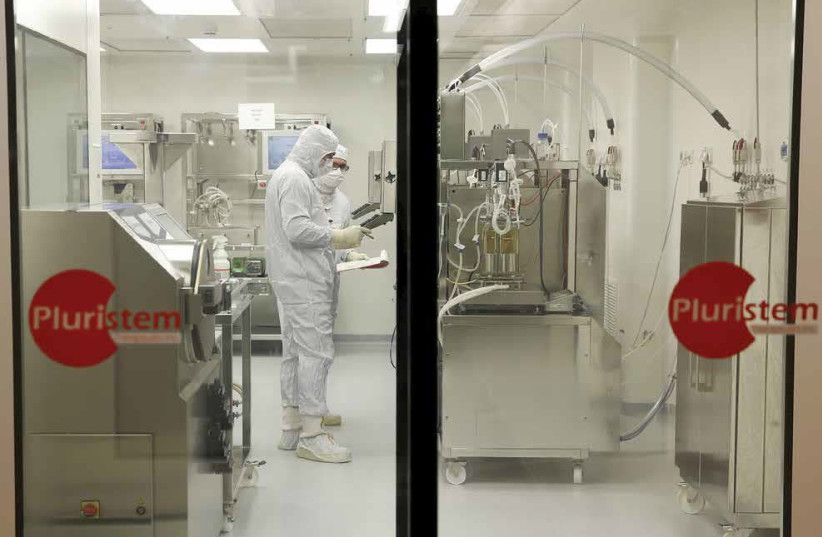
Pluristem Therapeutics, a Haifa-based regenerative-medicine company, has treated its first three coronavirus patients in Israel with its placenta-based cell-therapy product.
“In this time of emergency, we are honored to be taking part in the global effort to support patients and healthcare systems,” Pluristem president and CEO Yaky Yanay said. Pluristem said its PLX cells are “allogeneic mesenchymal-like cells that have immunomodulatory properties,” meaning they induce the immune system’s natural regulatory T cells and M2 macrophages. The result could be the reversal of dangerous overactivation of the immune system. This would likely reduce the fatal symptoms of pneumonia and pneumonitis (general inflammation of lung tissue).
The company dosed three patients in two different hospitals in Israel under a compassionate-use program for the treatment of COVID-19. It was approved by the Health Ministry.
Pluristem expects to enroll additional Israeli patients in the coming days. The company will share updates on clinical outcomes once significant data has been gathered, it said in a press release.
All the patients who have received the therapy are high risk. They are older, have preexisting medical conditions and have been intubated with a ventilator.
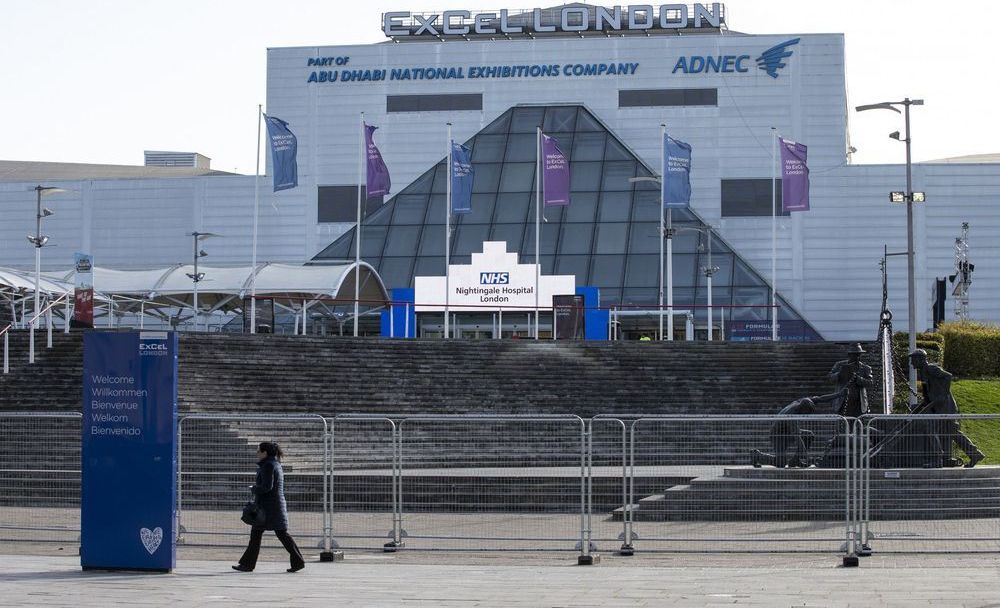
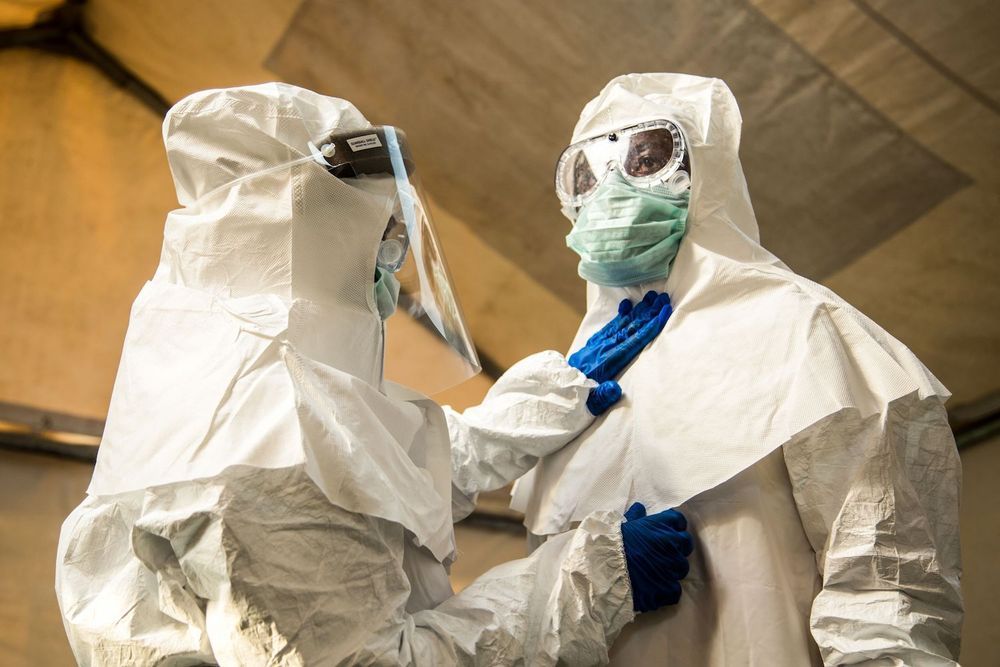
Circa 2018: In January 2017, while one of us was serving as a homeland security advisor to outgoing President Barack Obama, a deadly pandemic was among the scenarios that the outgoing and incoming U.S. Cabinet officials discussed in a daylong exercise that focused on honing interagency coordination and rapid federal response to potential crises. The exercise is an important element of the preparations during transitions between administrations, and it seemed things were off to a good start with a commitment to continuity and a focus on biodefense, preparedness, and the Global Health Security Agenda—an initiative begun by the Obama administration to help build health security capacity in the most critically at-risk countries around the world and to prevent the spread of infectious disease. But that commitment was short-lived.
Deadly diseases like Ebola and the avian flu are only one flight away. The U.S. government must start taking preparedness seriously.

Now, the descendant of that molecule — Gilead Sciences’ remdesivir — is being rushed to patients with infections from the novel coronavirus in hopes that it can reduce the intensity and duration of Covid-19 and ease the burden of the pandemic on health systems.
Remdesivir is now in the spotlight as scientists and governments scramble to hasten patients’ recovery and ease the pandemic’s burden on health systems.